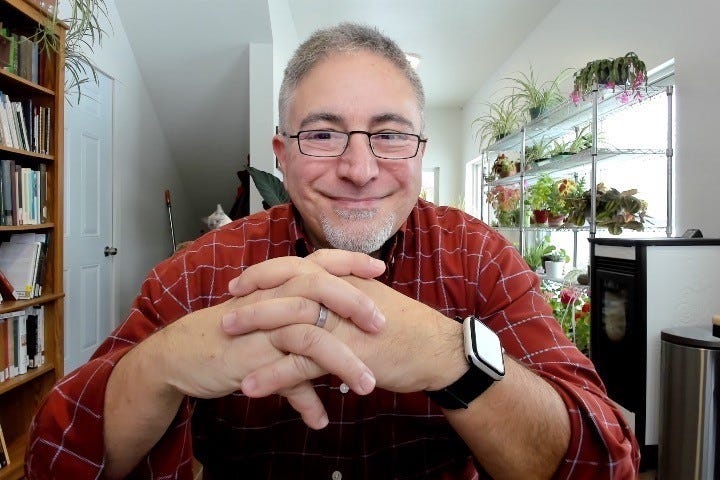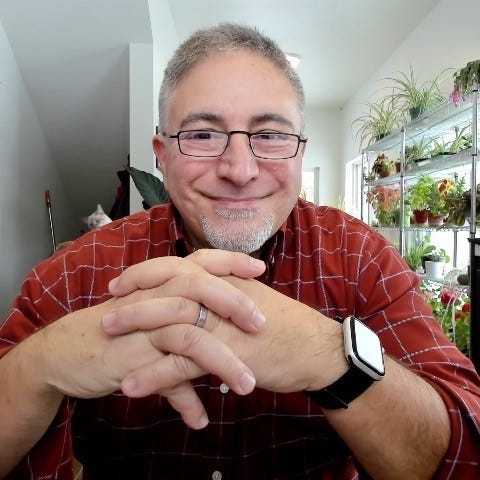Introducing Lifelong Learners!
A new Substack about Reading, Research, Making Notes, and Writing
If you’re like me, reading, researching, making notes, and writing are daily activities in our lives. But why do we do these things? For some of us they're enjoyable in their own right. That probably comes from some very early training or experience we had as children, where we discovered that "finding things out" produced some type of positive feedback. Maybe there's a "nature" element that goes along with that early nurture. For some people, there may be an inherent drive to understand. I suspect this is present in a lot of little children and maybe gets reduced by negative feedback that taught them to avoid showing interest. If so, that's tragic.
In any case, there do seem to be people who retain that urge to get to the bottom of things, find out how the world works, why things happen the way they do, what causes change. That's probably what curiosity is all about, when it's encouraged. Sometimes it can be derailed into just a fascination with shiny novelty, just as healthy hunger can be seduced into cravings for unnatural junk foods. To follow the analogy, our bodies are somewhat programmed to seek the nutrients that were essential but rare in nature as we were evolving. Similarly our attention evolved to make us hyper-aware of threats. And to seek attention that might enhance our reproductive fitness. In both cases, it's up to us now to discipline ourselves to avoid the fats in junk food, and the breaking news and dopamine thrill-ride of social media.
There are a lot of books, blogs, podcasts, and channels devoted to elements of this process. For example, Adler and Van Doren's classic text How to Read a Book or Sönke Ahrens' more recent How to Take Smart Notes. There are expensive online courses that promise to teach you a technology-enhanced set of skills with acronyms like LYT or PARA. Each of these has something useful to teach. But I think none of them have given me the full picture. So I've continued working with ideas I've discovered in a variety of places, putting them together in ways that seem to meet my needs. In this blog, I'll be describing and documenting those needs and the solutions I've built out of all these ideas, to address them.
I recently attended a global open education conference where people explored ways to meet the UNESCO Sustainable Development Goal devoted to "quality education". SDG #4 says the world should "Ensure inclusive and equitable quality education and promote lifelong learning opportunities for all." The words lifelong learning stuck in my head. I've been very focused, for the better part of the last decade, on Higher Education. I've been a university History professor and an author of open textbooks. I've published an academic monograph and am researching a couple more. But I have to admit, I've been doing these things primarily to provide myself with the opportunity to find things out, so I could be a lifelong learner. And as I've been following trails of ideas and stories, I've always been interested in trying to communicate my findings to people outside the classroom.
Now, as I'm counting down to the end of my university employment, I'm thinking more about shifting my focus so that I'm not repurposing classroom material for the general public, but actually finding ways to engage directly with lifelong learners like myself. That means making a lot more content for my channel, Making History. But I think it also means focusing a bit more on this process, so that other people can be not just viewers of what I produce because it interests me, but can read, research, make notes, and write their own content in whatever field interests them as lifelong learners. So this will be where I write about all those skills and show examples of how I've adapted and used them. Not so you can follow exactly what I did and become a historian (although if you want to become a historian, great!). But so you can put the ideas you find into something of your own, that meets your particular needs and interests.
You can find the new Substack here:
The details are that I'll post content here twice a week (sometimes more), which will be free for everyone to read for a month. Archives of everything I post will be available for paid subscribers, as well as weekly chats and occasional face-to-face online discussions. I’m looking forward to exploring and sharing lifelong learning, and I hope you’ll join me!



